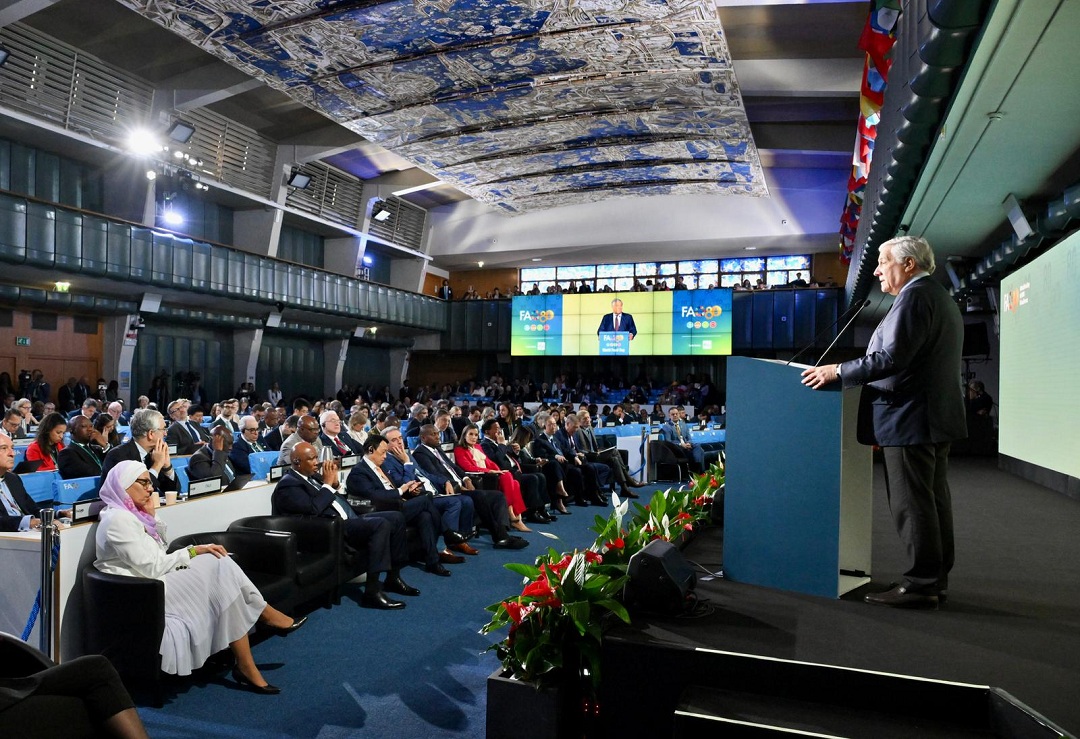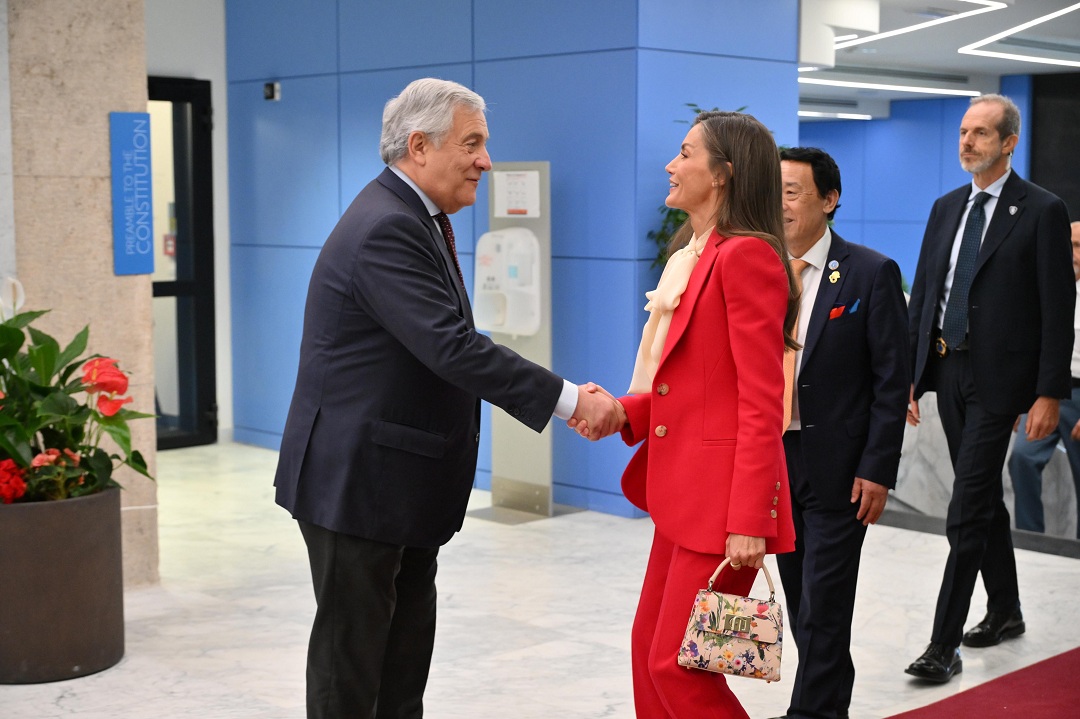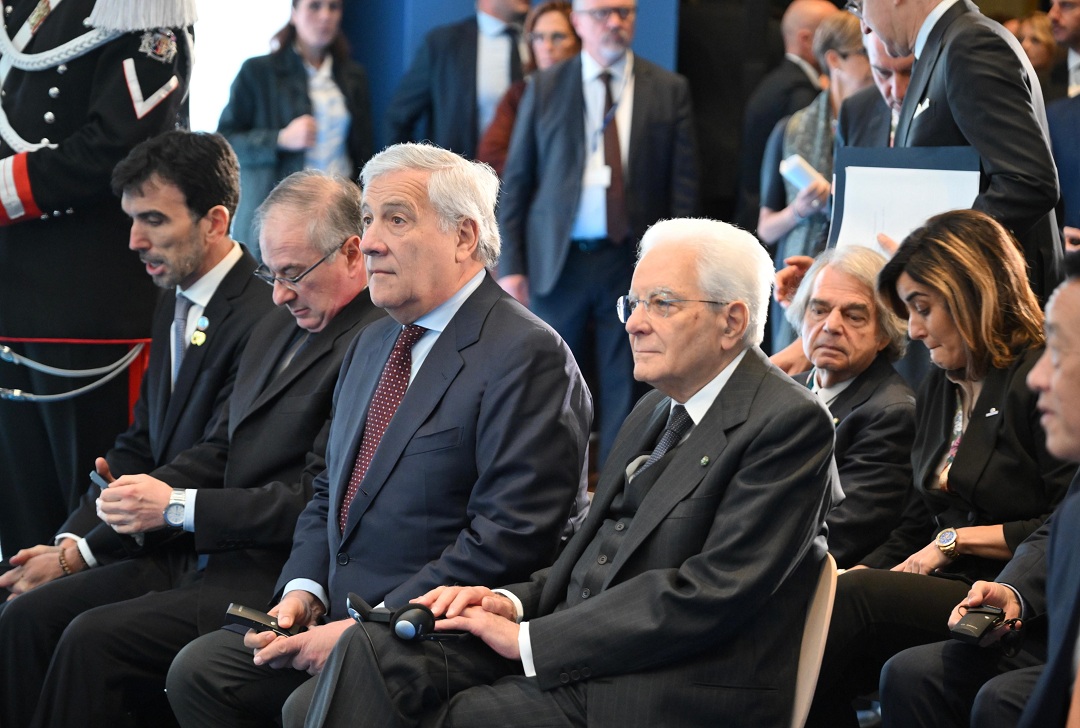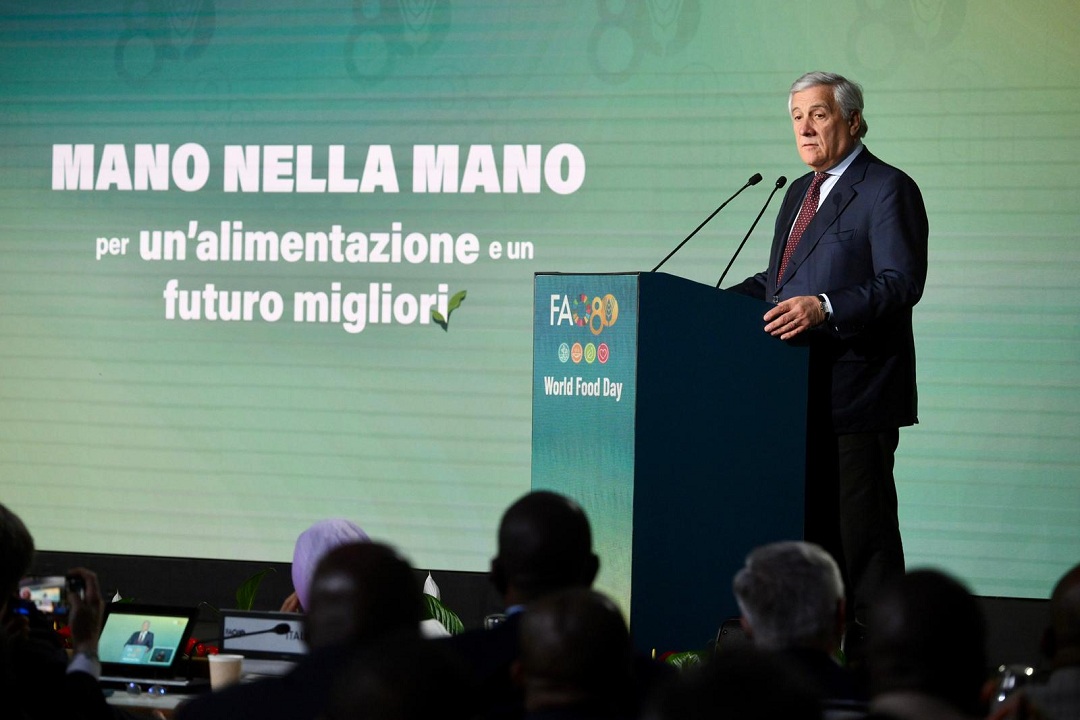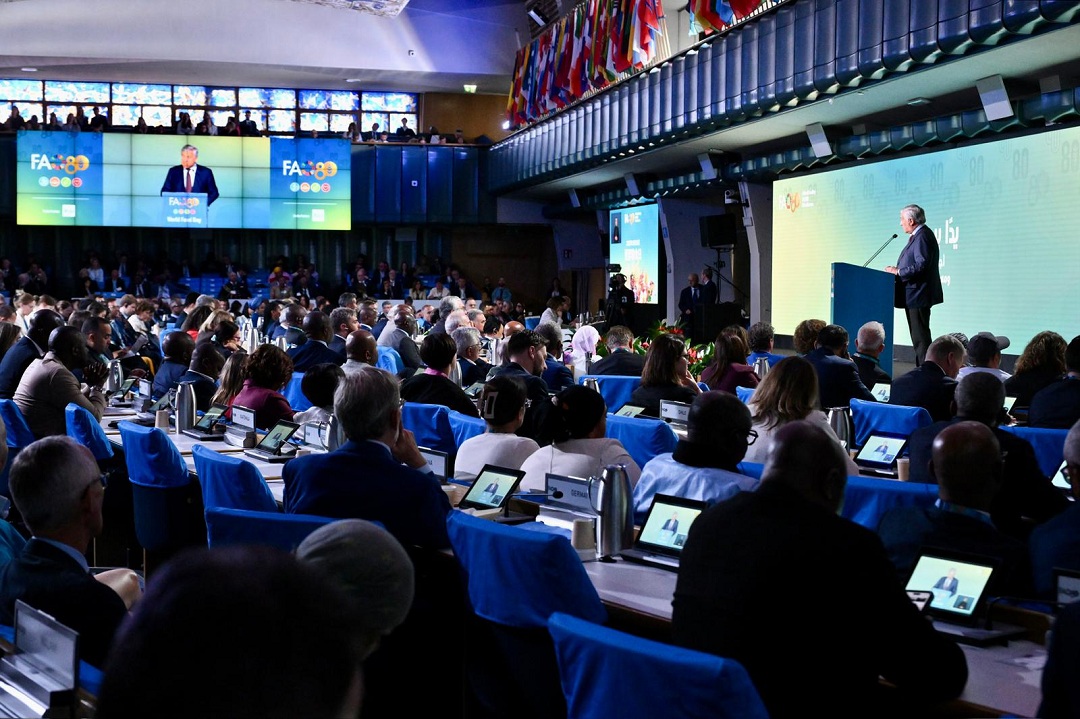On 16 October, the Minister of Foreign Affairs and International Cooperation, Antonio Tajani, attended the opening ceremony for World Food Day at the headquarters of the Food and Agriculture Organization (FAO). This year’s event held particular significance, marking the 80th anniversary of the FAO, whose headquarters are based in Rome.
Representing Italy and underscoring the country’s close partnership with the Organization were the President of the Republic, Sergio Mattarella, and the Prime Minister, Giorgia Meloni. The ceremony also featured the extraordinary participation of Pope Leo XIV and distinguished guests, including the Queen of Spain, the King of Lesotho, the President of Uruguay, the Princess of Jordan, senior officials from the UN agencies in Rome, and former UN Secretary-General Ban Ki-moon.
Minister Tajani reaffirmed the Italian Government’s commitment to the right to food and highlighted Italy’s focus on sustainable development. “Italy stands at the forefront of efforts to build bridges of dialogue and cooperation, promoting peace, well-being, and growth,” he stated, adding, “Today we celebrate 80 years of a shared commitment to safeguarding the right to food and ensuring food security for all”.
Particularly noteworthy in the current international context is the “Food for Gaza” programme, launched last year by Italy in collaboration with the FAO, the World Food Programme, and the Red Cross/Red Crescent, providing support to the civilian population in Gaza. In the same spirit, the Minister highlighted Italy’s strategic engagement in Africa. He also recalled Italy’s initiative at the United Nations for an Olympic Truce during the upcoming Milan-Cortina Winter Olympics.
The plenary session was preceded by the inauguration of the “Museum and Network of Food and Agriculture” (FAO MuNe), financed by Italian Cooperation. In his remarks during the ribbon-cutting, Minister Tajani emphasised that – now more than ever – food security is synonymous with peace. Housed within the FAO headquarters, the museum aims to foster a stronger sense of community and networking, showcasing the Organization’s work and Italy’s contribution to the FAO mission. The museum comprises eleven rooms, featuring artworks and multimedia installations that illustrate the history of agriculture and the future of sustainable food systems, fields in which Italy has consistently played a leading role.
Italy is the FAO’s seventh largest contributor (2024 data). Over the past three years, mandatory and voluntary contributions have remained stable, averaging approximately EUR 27 million per year. Over 900 Italians are employed by the FAO, the UN’s first specialised agency. The Organization plays a central role in promoting food sustainability and poverty reduction. Since 1945, it has been particularly vital for the most vulnerable populations, contributing to peace and security even in contexts where basic necessities are scarce.

